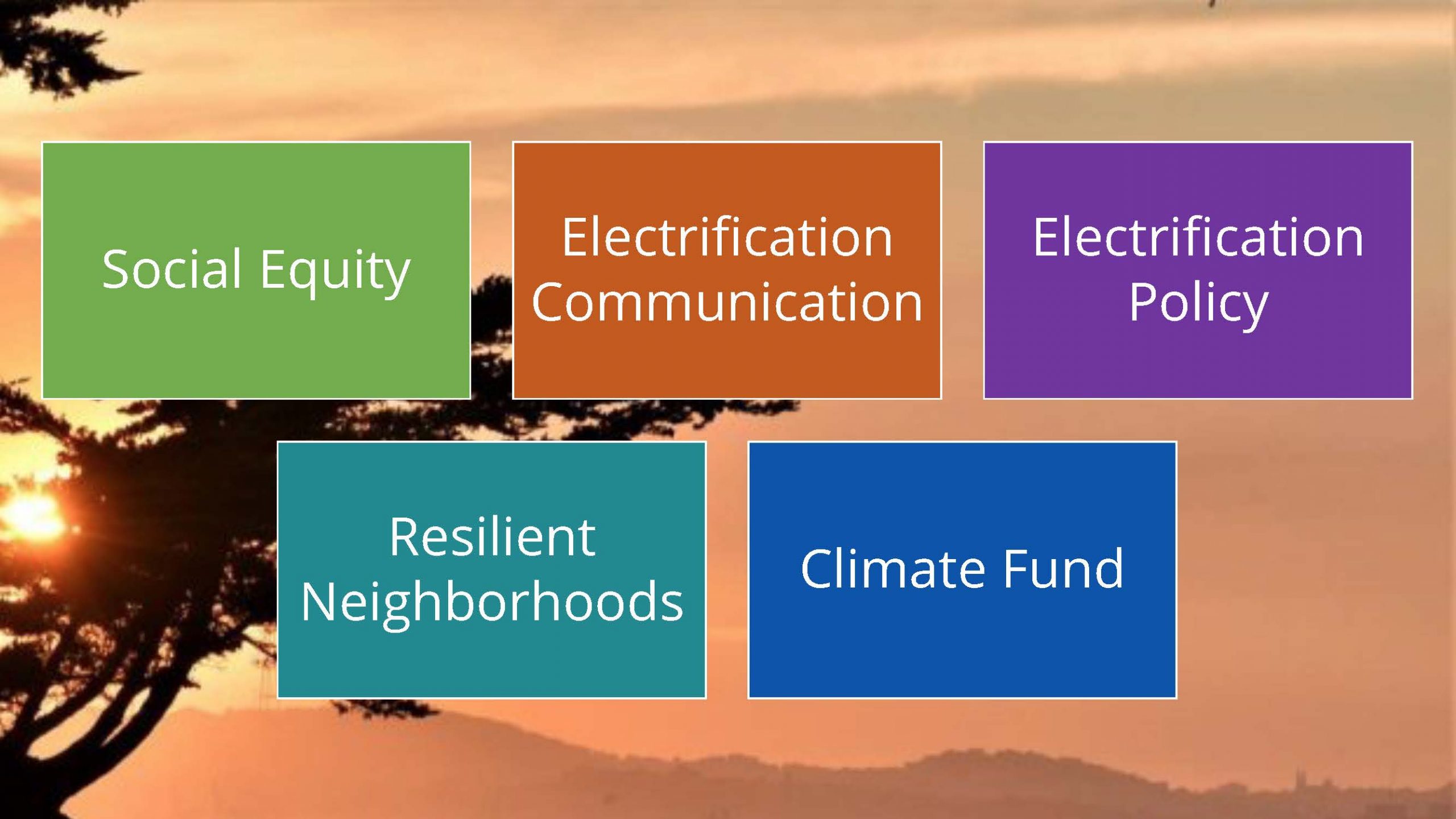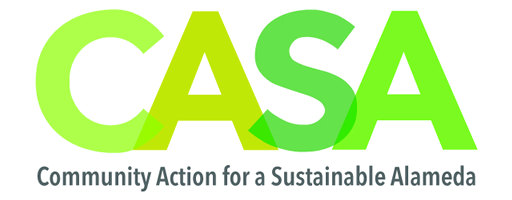

Community Action for a Sustainable Alameda (CASA) has been delighted to partner with the City of Alameda to host five fall interns from Pomona College and Seattle University who are assisting us with research in support of the City of Alameda Climate Action and Resiliency Plan.
Social Equity – Chris Clark developed updates for the City of Alameda’s Social Vulnerability Assessment by adding additional metrics of gentrification, contamination, and redlining. The Social Vulnerability Assessment is used to assess a household’s ability to prepare for, respond to, and recover from a natural hazard event and as a geography-based tool for understanding the social equity implications of some City of Alameda projects and programs. Link to presentation.
Electrification Communication – Emily Nielsen has created a new website and social media campaign to launch “Electrify Alameda.” This website will be a resource for Alameda residents who would like to convert from natural gas appliances and heating and cooling systems to electric alternatives. The website provides information on the “how and why” and links residents to resources and rebates. Link to “Electrify Alameda” website.
Electrification Policy – Cheyenne Vance researched different policy options for reducing natural gas consumption in existing buildings. These include potential changes to the City’s building code to address electrification and energy efficiency at the time of sale or remodel. Cheyenne identified intervention points and specific strategies, including low cost options and more expensive options so that residents can choose based on their budgets. Link to presentation.
Resilient Neighborhoods – Kylie Wong reviewed options for establishing Resilient Neighborhoods and Resilience Hubs in Alameda. Creating more connectedness between neighbors will make us more resilient to the impacts of climate change. Neighborhood-based outreach and communication can also strengthen messaging and participation in climate mitigation and resiliency projects. Link to presentation.
Climate Fund – Virginia Paschal evaluated alternatives for creating dedicated climate funding sources for Alameda. These include: a utility user tax on natural gas to fund climate mitigation projects, an infrastructure bond for adaptation projects, and regional, state and federal grants. Long-term, dedicated funding for climate solutions will be essential for implementation of Alameda’s Climate Action and Resiliency Plan. Link to presentation.
